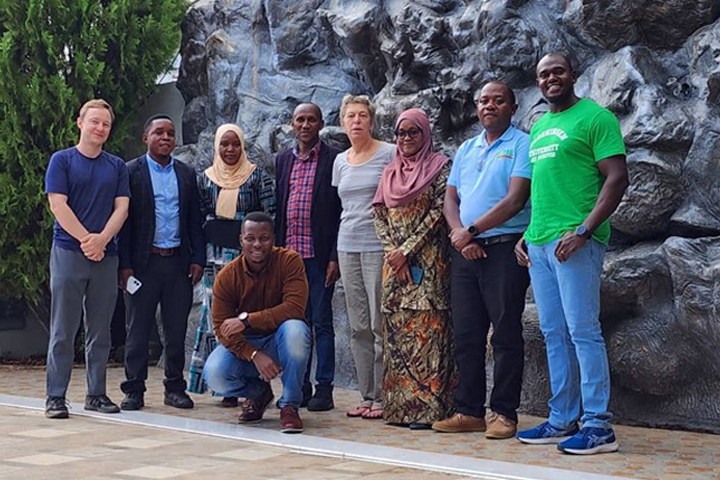On 1-2 November 2023, the International Potato Center (CIP), through the OneCGIAR’s Seed Equal Initiative (Work Packages 3 & 4) and the Program for Seed Systems Innovations for Vegetatively Propagated Crops in Africa (PROSSIVA) hosted a 2-day training in Mwanza, Tanzania for CGIAR and the Tanzania Agricultural Research Institute (TARI) RTB staff on methods to estimate farmers demand for seed. Central in this training were the Experimental Auctions and Seed Tracing Studies, two tools from the Toolbox for working with Root Tuber and Banana Seed systems.
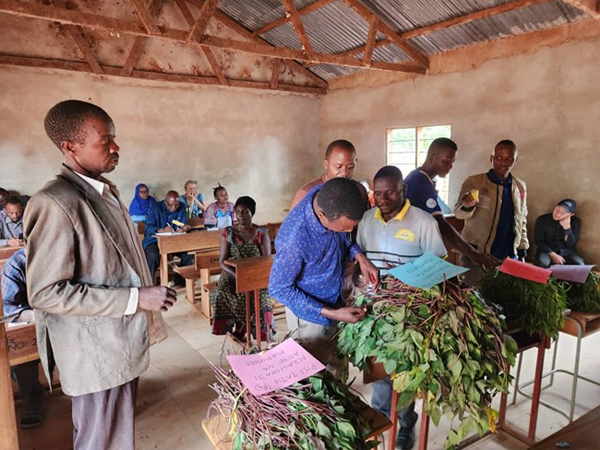
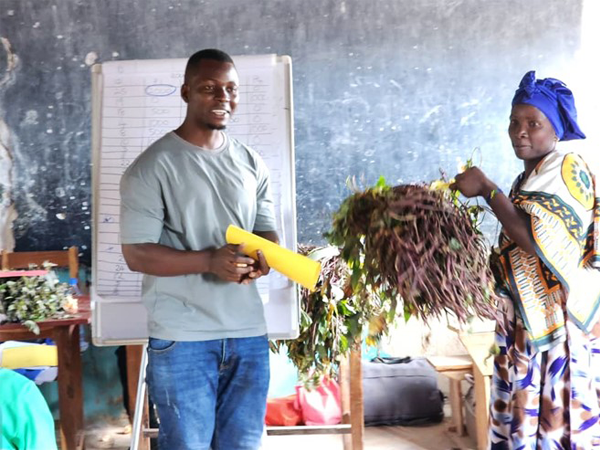
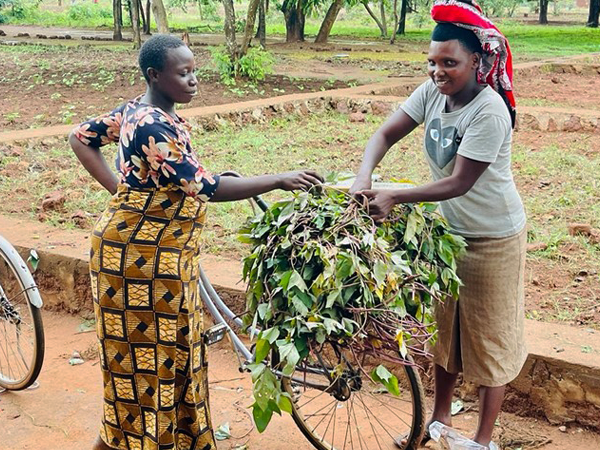
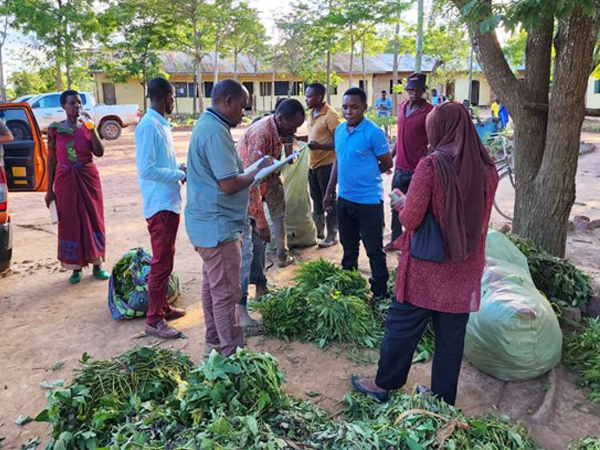
After this training the CIP and TARI-Ukiriguru Sweetpotato team spent a week in the field with a small Toolbox Support Team – with participation of Alliance-CIAT and WUR – and carried out eight experimental auctions, to put the training into practice and to collect data on farmers’ demand for sweetpotato vines. Vines are the common planting material that smallholder women and men use to plant their crop when the rains start. The planting season stretches from when the rains start in September-October until February. Conserving vines from the last harvest is challenging and depends on the length of the dry season and access to water on farmers’ land. These conditions vary between and within villages which translates in different seed demand patterns. In combination with a broad portfolio of local and improved sweetpotato varieties, TARI staff works closely with trained vine multipliers to build a reliable and efficient multiplication and supply system of early generation seed. Understanding the different aspects of farmers’ demand for seed, in this case their variety preference and awareness of quality of seed, is crucial information.
Seed experimental auctions were used by the team to explore farmers’ willingness to pay for one or more bundles of sweet potato vines. In these auction settings the team compared bids for bundles of vines of different sweetpotato varieties and vines from local and certified vine multipliers. In this case, the TARI team also brought a large number of vine bundles of different sweetpotato varieties to be sold after the experimental auction. Vines were sold to interested farmers and at the same time validate the farmers’ bids. They found that many farmers bought one or two bundles of varieties that they were new to them, and that farmers gave a higher value to vines from trained seed multipliers. , but not everybody was in a position to really buy at the price they bid. After 1 week in the field and experimental auctions in 8 villages, the team looks back on an extremely successful experience with the tool and the collected data are now being processed and analysed to feed the future planning models for early generation seed multiplication and diffusion. With confidence and experience, the team is now looking forward to possibilities for their fellow teams working on cassava and banana seed to engage in similar experiments.

